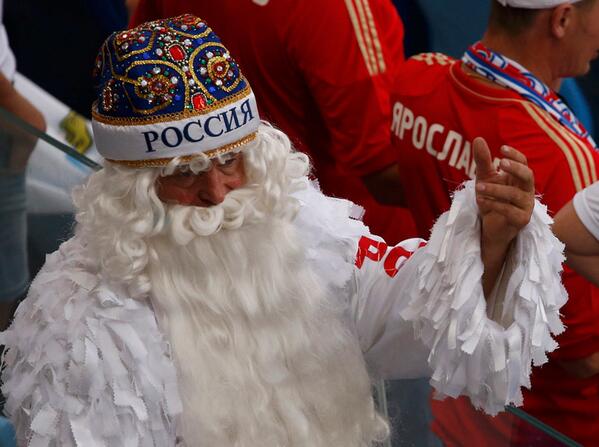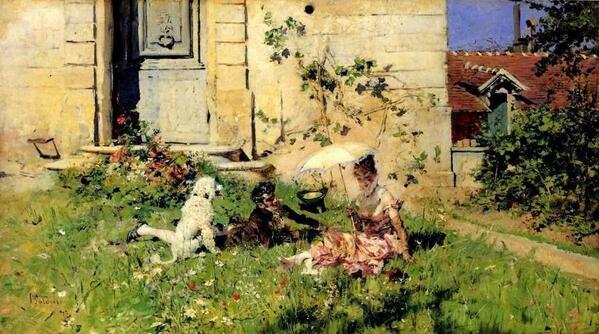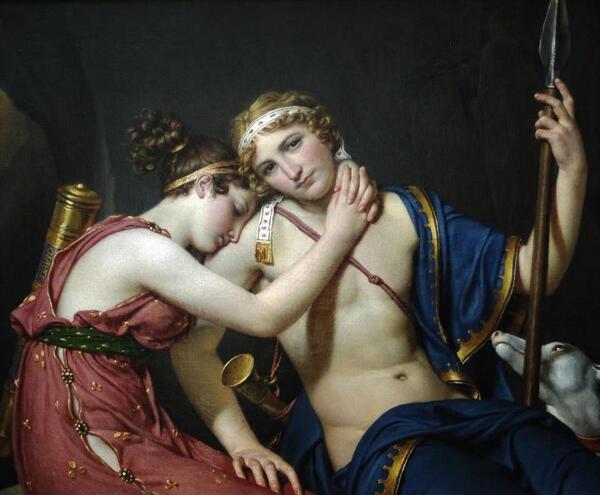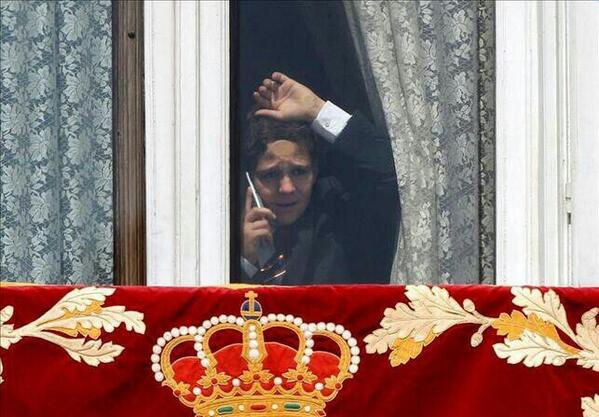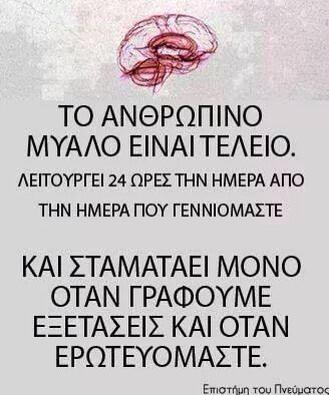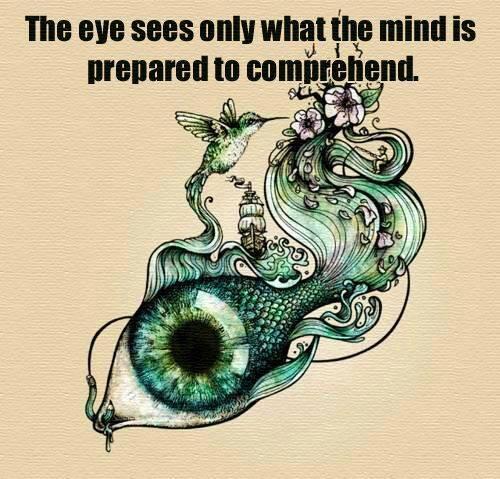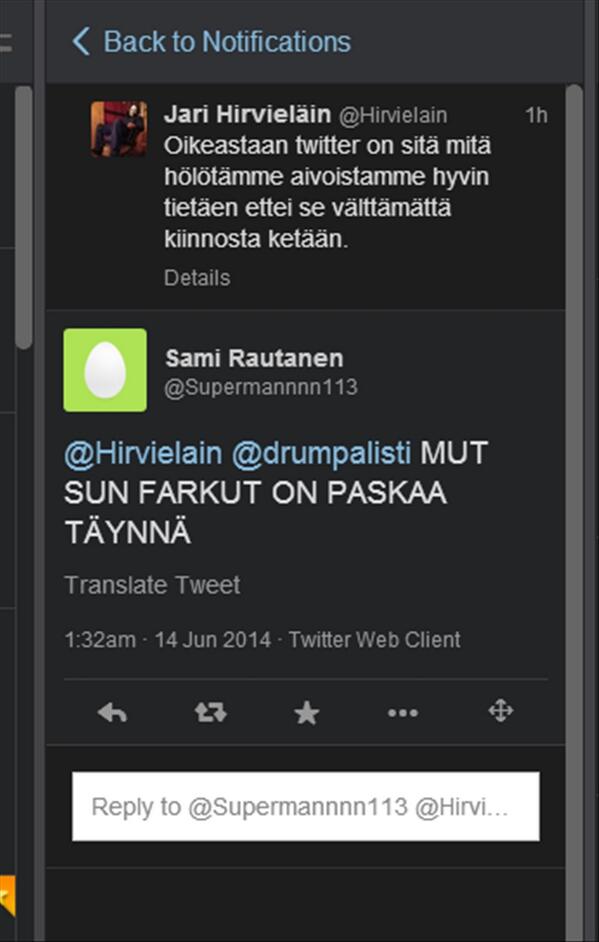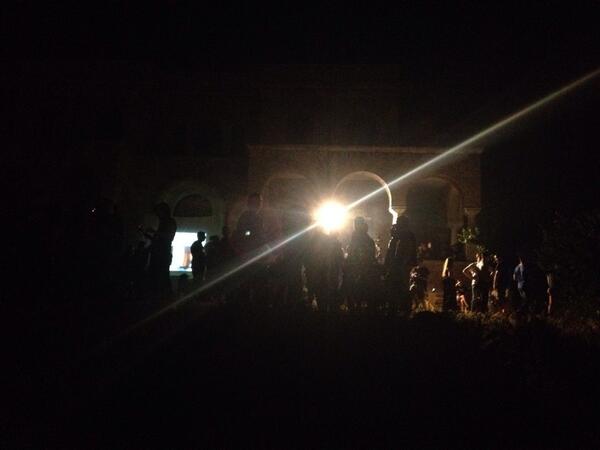HEHE @TSVKOM · 17 t
.@Plutokraatti Sinua emme lisää Kärttyisät sedät -listalle, senkin höpönassuhumoristi.

Libertarian socialism
From Wikipedia, the free encyclopedia
Part of a series on
Libertarian socialism
Concepts[hide]
#eitämämeidäntwittervirtaniinvilkasole #teidätonkutsuttutöihin #kompromisssuomi2014Anti-authoritarianism Anti-capitalism Anti-consumerism Anti-Leninism Anti-Stalinist left Anti-statism Classless society Consensus democracy Common ownership Commons Commune Decentralization Decentralized planning Direct democracy Dual power Class struggle Economic democracy Egalitarian community Free association Free love Free school Free store Mass strike Guilds Libertarian municipalism Mutual aid Phalanstère Prefigurative politics Proletarian internationalism Refusal of work Social center Social enterprise State capitalism Stateless society Squatting Ultra-leftism Use value Wage slavery Workers' control Worker cooperative Workers' council
Models[hide]
Gift economyNikke Ankara - Perjantai 13.
Communalism
Communization
Economic democracy
Guild socialism
Inclusive Democracy
Left-wing market anarchism
Participatory economics
Socialization
People[hide]
Gerrard Winstanley Charles Fourier Josiah Warren Pierre-Joseph Proudhon Joseph Déjacque Francesc Pi i Margall Mikhail Bakunin Louise Michel Peter Kropotkin William Morris Oscar Wilde Benjamin Tucker Errico Malatesta Leo Tolstoy Francesc Ferrer i Guàrdia Emma Goldman G. D. H. Cole Ricardo Flores Magón Gustav Landauer Rudolf Rocker Otto Rühle Antonie Pannekoek Buenaventura Durruti Nestor Makhno Sylvia Pankhurst Paul Mattick Mahatma Gandhi Dorothy Day Herbert Marcuse Cornelius Castoriadis Paul Goodman Colin Ward Chris Pallis Daniel Guérin Murray Bookchin Guy Debord Raoul Vaneigem Abbie Hoffman Antonio Negri Takis Fotopoulos Noam Chomsky Gilles Dauvé Michael Albert Subcomandante Marcos
Philosophies[hide]
Anarcho-communism
Anarchist economics
Anarcho-syndicalism
Autonomism
Collectivist anarchism
Council communism
Fourierism
Gandhian economics
Insurrectionary anarchism
Libertarian Marxism
Left communism
Luxemburgism
Magonism
Mutualism
Participism
Platformism
Social anarchism
Social ecology
Situationist International
Revolutionary syndicalism
Yippies
Zapatismo
Significant events[hide]
Diggers
Cantonal Revolution
Paris Commune
Haymarket affair
Strandzha Commune
February Revolution
Bavarian Soviet Republic
German Revolution of 1918–1919
Biennio Rosso
Free Territory
Left-wing uprisings
against the Bolsheviks
Kronstadt uprising
Escuela Moderna
Mexican Revolution
Spanish Revolution
1953 East German uprising
1956 Hungarian Revolution
May 1968 in France
Prague Spring
Left Communism in China
Autonomia Operaia
Zapatista Uprising
1999 Seattle WTO protests
Argentinazo
Occupy movement
Related topics[hide]
Anarchism Libertarianism Left-libertarianism Marxism Socialism
Anarchism portal
Socialism portal
Libertarianism portal
Philosophy portal
Politics portal
v t e
Libertarian socialism (sometimes called social anarchism,[1][2] left-libertarianism[3][4] and socialist libertarianism[5]) is a group of political philosophies that promote a non-hierarchical, non-bureaucratic society without private property in the means of production. Libertarian socialists believe in converting present-day private productive property into common, while retaining respect for personal property, based on occupancy and use.[6] Libertarian socialism is opposed to coercive forms of social organization. It promotes free association in place of government and opposes the social relations of capitalism, such as wage labor.[7] The term libertarian socialism is used by some socialists to differentiate their philosophy from state socialism,[8][9] and by some as a synonym for anarchism.[1][2][10]
Adherents of libertarian socialism assert that a society based on freedom and equality can be achieved through abolishing authoritarian institutions that control certain means of production and subordinate the majority to an owning class or political and economic elite.[11] Libertarian socialism also constitutes a tendency of thought that promotes the identification, criticism, and practical dismantling of illegitimate authority in all aspects of life.[12][13][14][15][16][17][18]
Accordingly, libertarian socialists believe that "the exercise of power in any institutionalized form—whether economic, political, religious, or sexual—brutalizes both the wielder of power and the one over whom it is exercised".[19] Libertarian socialists generally place their hopes in decentralized means of direct democracy such as libertarian municipalism, citizens' assemblies, trade unions, and workers' councils.[20]
Political philosophies commonly described as libertarian socialist include most varieties of anarchism (especially anarchist communism, anarchist collectivism, anarcho-syndicalism,[21] and mutualism[22]) as well as autonomism, Communalism, participism, libertarian Marxist philosophies such as council communism and Luxemburgism,[23] and some versions of "utopian socialism"[24] and individualist anarchism.[25][26][27]
Contents [hide]
1 Overview
1.1 Anti-capitalism
1.2 Anti-authoritarianism and opposition to the state
1.3 Civil liberties and individual freedom
1.4 Violent and non-violent means
1.5 Environmental issues
2 Political roots
2.1 Within early modern socialist thought
2.1.1 Peasant revolts in the post-reformation era
2.1.2 The Enlightenment
2.1.3 The Romantic era and "Utopian Socialism"
2.2 Anarchism
2.3 Marxism
3 Notable libertarian socialist tendencies
3.1 Classical anarchist tendencies
3.1.1 Mutualism
3.1.2 Collectivist anarchism
3.1.3 Anarchist communism
3.1.4 Within individualist anarchism
3.1.5 Anarcho-syndicalism
3.2 Libertarian Marxist tendencies
3.2.1 De Leonism
3.2.2 Council communism
3.2.3 Left communism
3.2.4 Johnson–Forest tendency
3.2.5 Socialisme ou Barbarie
3.2.6 Situationist International
3.2.7 Autonomism
3.3 Other tendencies
3.3.1 Georgism
3.3.2 Guild socialism
3.3.3 Revolutionary syndicalism
3.3.4 Christian anarchism
3.3.5 Gandhism
3.3.6 Platformism
3.3.7 Within the New Left
3.3.8 Social ecology and Communalism
3.3.9 Participism
3.3.10 Inclusive Democracy
3.3.11 Insurrectionary anarchism
3.3.12 Within the labour movement and parliamentary politics
3.3.13 Zapatismo and Magonism
3.3.14 Left wing market anarchism
3.3.15 Communization
4 Contemporary libertarian socialism
5 Libertarian socialist periodicals
6 See also
7 References
8 Bibliography
9 External links
9.1 Libertarian socialist general resources
9.2 Introductory articles
9.3 Libertarian socialist websites
9.4 Libertarian socialist history
9.5 Film
Overview[edit]
Libertarian socialism is a western philosophy with diverse interpretations, though some general commonalities can be found in its many incarnations. Its proponents generally advocate a worker-oriented system of production and organization in the workplace that in some aspects radically departs from neoclassical economics in favor of democratic cooperatives or common ownership of the means of production (socialism).[28] They propose that this economic system be executed in a manner that attempts to maximize the liberty of individuals and minimize concentration of power or authority (libertarianism).
August 17, 1860 edition of libertarian Communist publication Le Libertaire edited by Joseph Déjacque.
Libertarian socialists are strongly critical of coercive institutions, which often leads them to reject the legitimacy of the state in favor of anarchism.[29] Adherents propose achieving this through decentralization of political and economic power, usually involving the socialization of most large-scale private property and enterprise (while retaining respect for personal property). Libertarian socialism tends to deny the legitimacy of most forms of economically significant private property, viewing capitalist property relations as forms of domination that are antagonistic to individual freedom.[30][31]
The first anarchist journal to use the term "libertarian" was Le Libertaire, Journal du Mouvement Social and it was published in New York City between 1858 and 1861 by French anarcho-communist Joseph Déjacque.[32] "The next recorded use of the term was in Europe, when "libertarian communism" was used at a French regional anarchist Congress at Le Havre (16–22 November 1880). January the following year saw a French manifesto issued on "Libertarian or Anarchist Communism." Finally, 1895 saw leading anarchists Sébastien Faure and Louise Michel publish La Libertaire in France."[32] The word stems from the French word libertaire, and was used to evade the French ban on anarchist publications.[33] In this tradition, the term "libertarianism" in "libertarian socialism" is generally used as a synonym for anarchism, which some say is the original meaning of the term; hence "libertarian socialism" is equivalent to "socialist anarchism" to these scholars.[2][34] In the context of the European socialist movement, libertarian has conventionally been used to describe those who opposed state socialism, such as Mikhail Bakunin.
The association of socialism with libertarianism predates that of capitalism, and many anti-authoritarians still decry what they see as a mistaken association of capitalism with libertarianism in the United States.[35] As Noam Chomsky put it, a consistent libertarian "must oppose private ownership of the means of production and wage slavery, which is a component of this system, as incompatible with the principle that labor must be freely undertaken and under the control of the producer."[36]
In a chapter recounting the history of libertarian socialism, economist Robin Hahnel relates that thus far the period where libertarian socialism has had its greatest impact was at the end of the 19th century through the first four decades of the twentieth century.
Early in the twentieth century, libertarian socialism was as powerful a force as social democracy and communism. The Libertarian International– founded at the Congress of Saint Imier a few days after the split between Marxist and libertarians at the congress of the Socialist International held in The Hague in 1872– competed successfully against social democrats and communists alike for the loyalty of anticapitalist activists, revolutionaries, workers, unions and political parties for over fifty years. Libertarian socialists played a major role in the Russian revolutions of 1905 and 1917. Libertarian socialists played a dominant role in the Mexican Revolution of 1911. Twenty years after World War I was over, libertarian socialists were still strong enough to spearhead the social revolution that swept across Republican Spain in 1936 and 1937.[37]
On the other hand a libertarian trend also developed within marxism which gained visibility around the late 1910s mainly in reaction against Bolshevism and Leninism rising to power and establishing the Soviet Union. Contemporary libertarian Marxist Harry Cleaver describes the situation as follows:
Outside and against this process of turning of Marxism into an ideology of domination, however, were various revolutionary tendencies which still drew on Marx's work to inform their struggles and which rejected both social- democratic and Marxist-Leninist versions of his theory. The most interesting of these, those that are relevant to my current purpose, have been those which insisted on the primacy of the self-activity and creativity of people in struggle against capitalism. Within the space of these tendencies there has developed a coherent critique of "orthodox Marxism" that includes not only a rejection of the concept of "the transition" but a reconceptualization of the process of transcending capitalism that has remarkable similarities to Kropotkin's thinking on this subject. ... Thus one of the earliest political tendencies within which this approach appeared after the Russian revolution of 1917 was that of "Council Communism" which saw the "workers councils" in Germany (see Bavarian Soviet Republic), or the soviets in Russia, as new organizational forms constructed by the people. As with the anarchists, they too saw the Bolshevik take-over of the soviets (like that of the trade unions) as subverting the revolution and beginning the restoration of domination and exploitation. ... Over the years this emphasis on working class autonomy has resulted in a reinterpretation of Marxist theory that has brought out the two-sided character of the class struggle and shifted the focus from capital (the preoccupation of orthodox Marxism) to the workers. ... As a result, not only has there been a recognition that capitalism seeks to subordinate everyone's life (from the traditional factory proletariat to peasants, housewives and students) but that all those peoples' struggles involve both the resistance to this subordination and the effort to construct alternative ways of being.[38]
Anti-capitalism[edit]
Main article: Anti-capitalism
Part of a series on
Socialism
Red flag waving.svg
Development[show]
Ideas[show]
Models[show]
Variants[show]
History by country[show]
People[show]
Organizations[show]
Socialism portal
Economics portal
Politics portal
v t e
Libertarian socialists are anti-capitalist, and can thus be distinguished from right-wing libertarians. Whereas capitalist (and right-libertarian) principles concentrate economic power in the hands of those who own the most capital, libertarian socialism aims to distribute power, and thus freedom, more equally amongst members of society. A key difference between libertarian socialism and capitalist libertarianism is that advocates of the former generally believe that one's degree of freedom is affected by one's economic and social status, whereas advocates of the latter focus on freedom of choice within a capitalist framework. This is sometimes characterized as a desire to maximize "free creativity" in a society in preference to "free enterprise."[39]
Within anarchism there emerged a critique of wage slavery which refers to a situation perceived as quasi-voluntary slavery,[40] where a person's livelihood depends on wages, especially when the dependence is total and immediate.[41][42] It is a negatively connoted term used to draw an analogy between slavery and wage labor by focusing on similarities between owning and renting a person. The term wage slavery has been used to criticize economic exploitation and social stratification, with the former seen primarily as unequal bargaining power between labor and capital (particularly when workers are paid comparatively low wages, e.g. in sweatshops),[43] and the latter as a lack of workers' self-management, fulfilling job choices and leisure in an economy.[44][45][46] Libertarian socialists believe if freedom is valued, then society must work towards a system in which individuals have the power to decide economic issues along with political issues. Libertarian socialists seek to replace unjustified authority with direct democracy, voluntary federation, and popular autonomy in all aspects of life,[47] including physical communities and economic enterprises. With the advent of the industrial revolution, thinkers such as Proudhon and Marx elaborated the comparison between wage labor and slavery in the context of a critique of societal property not intended for active personal use,[48][49] Luddites emphasized the dehumanization brought about by machines while later Emma Goldman famously denounced wage slavery by saying: "The only difference is that you are hired slaves instead of block slaves.".[50]
Many libertarian socialists argue that large-scale voluntary associations should manage industrial manufacture, while workers retain rights to the individual products of their labor.[51] As such, they see a distinction between the concepts of "private property" and "personal possession". Whereas "private property" grants an individual exclusive control over a thing whether it is in use or not, and regardless of its productive capacity, "possession" grants no rights to things that are not in use.[52]
Anti-authoritarianism and opposition to the state[edit]
v t e
Libertarian socialists generally regard concentrations of power as sources of oppression that must be continually challenged and justified. Most libertarian socialists believe that when power is exercised, as exemplified by the economic, social, or physical dominance of one individual over another, the burden of proof is always on the authoritarian to justify their action as legitimate when taken against its effect of narrowing the scope of human freedom.[53] Libertarian socialists typically oppose rigid and stratified structures of authority, be they political, economic, or social.[54]
In lieu of corporations and states, libertarian socialists seek to organize society into voluntary associations (usually collectives, communes, municipalities, cooperatives, commons, or syndicates) that use direct democracy or consensus for their decision-making process. Some libertarian socialists advocate combining these institutions using rotating, recallable delegates to higher-level federations.[55] Spanish anarchism is a major example of such federations in practice.
Contemporary examples of libertarian socialist organizational and decision-making models in practice include a number of anti-capitalist and global justice movements[56] including Zapatista Councils of Good Government and the Global Indymedia network (which covers 45 countries on six continents). There are also many examples of indigenous societies around the world whose political and economic systems can be accurately described as anarchist or libertarian socialist, each of which is unique and uniquely suited to the culture that birthed it.[57] For libertarians, that diversity of practice within a framework of common principles is proof of the vitality of those principles and of their flexibility and strength.
Contrary to popular opinion, libertarian socialism has not traditionally been a utopian movement, tending to avoid dense theoretical analysis or prediction of what a future society would or should look like. The tradition instead has been that such decisions cannot be made now, and must be made through struggle and experimentation, so that the best solution can be arrived at democratically and organically, and to base the direction for struggle on established historical example. They point out that the success of the scientific method comes from its adherence to open rational exploration, not its conclusions, in sharp contrast to dogma and predetermined predictions. To libertarian socialists, dogmatic approaches to social organization are doomed to failure; and thus they reject Marxist notions of linear and inevitable historical progression.[citation needed] Noted anarchist Rudolf Rocker once stated, "I am an anarchist not because I believe anarchism is the final goal, but because there is no such thing as a final goal".[58]
Because libertarian socialism encourages exploration and embraces a diversity of ideas rather than forming a compact movement, there have arisen inevitable controversies over individuals who describe themselves as libertarian socialists but disagree with some of the core principles of libertarian socialism. For example, Peter Hain interprets libertarian socialism as minarchist rather than anarchist, favoring radical decentralization of power without going as far as the complete abolition of the state[59] and libertarian socialist Noam Chomsky supports dismantling all forms of unjustified social or economic power, while also emphasizing that state intervention should be supported as a temporary protection while oppressive structures remain in existence.
Proponents are known for opposing the existence of states or government and refusing to participate in coercive state institutions. Indeed, in the past many refused to swear oaths in court or to participate in trials, even when they faced imprisonment[60] or deportation.[61]
Civil liberties and individual freedom[edit]
Main articles: Free love, Anarchism and issues related to love and sex, Anarchism and religion, Anarcha-feminism, Anarchism and education, Queer anarchism and Individualist anarchism
Libertarian socialists have been strong advocates and activists of civil liberties that provide an individual specific rights such as the freedom in issues of love and sex (free love) (see Anarchism and issues related to love and sex) and of thought and conscience (freethought). In this activism they have clashed with state and religious institutions which have limited such rights (see Anarchism and religion). Anarchism has been an important advocate of free love since its birth. Later a strong tendency of free love appeared alongside anarcha-feminism and advocacy of LGBT rights (see Anarchism and issues related to LGBTI persons). In recent times anarchism has also voiced opinions and taken action around certain sex related subjects such as pornography,[62] BDSM[63] and the sex industry.[63]
American anarchist Emma Goldman, prominent anarcha-feminist, free love and freethought activist
Anarcha-feminism developed as a synthesis of radical feminism and anarchism that views patriarchy (male domination over women) as a fundamental manifestation of compulsory government. It was inspired by the late 19th century writings of early feminist anarchists such as Lucy Parsons, Emma Goldman, Voltairine de Cleyre and Virginia Bolten. Anarcha-feminists, like other radical feminists, criticise and advocate the abolition of traditional conceptions of family, education and gender roles. Also the council communist Sylvia Pankhurst was a feminist activist as well as a libertarian marxist. Anarchists also took a pioneering interest in issues related to LGBTI persons. An important current within anarchism is free love.[64] Free love advocates sometimes traced their roots back to the early anarchist Josiah Warren and to experimental communities, viewed sexual freedom as a clear, direct expression of an individual's self-ownership. Free love particularly stressed women's rights since most sexual laws discriminated against women: for example, marriage laws and anti-birth control measures.[65]
Libertarian socialists have traditionally been skeptical of and opposed to organized religion.[66] Freethought is a philosophical viewpoint that holds opinions should be formed on the basis of science, logic, and reason, and should not be influenced by authority, tradition, or other dogmas.[41][67] The cognitive application of freethought is known as "freethinking," and practitioners of freethought are known as "freethinkers."[41] In the United States, "freethought was a basically anti-Christian, anti-clerical movement, whose purpose was to make the individual politically and spiritually free to decide for himself on religious matters. A number of contributors to Liberty (anarchist publication) were prominent figures in both freethought and anarchism. The individualist anarchist George MacDonald was a co-editor of Freethought and, for a time, The Truth Seeker. E.C. Walker was co-editor of the...free-thought / free love journal Lucifer, the Light-Bearer".[68] Free Society (1895–1897 as The Firebrand; 1897–1904 as Free Society) was a major anarchist newspaper in the United States at the end of the nineteenth and beginning of the twentieth centuries.[69] The publication staunchly advocated free love and women's rights, and critiqued "Comstockery" – censorship of sexual information. In 1901, Catalan anarchist and free-thinker Francesc Ferrer i Guàrdia established "modern" or progressive schools in Barcelona in defiance of an educational system controlled by the Catholic Church.[70] The schools' stated goal was to "educate the working class in a rational, secular and non-coercive setting". Fiercely anti-clerical, Ferrer believed in "freedom in education", education free from the authority of church and state[71] (see Anarchism and education).
Violent and non-violent means[edit]
See also: Anarchism and violence
Some libertarian socialists see violent revolution as necessary in the abolition of capitalist society. Along with many others, Errico Malatesta argued that the use of violence was necessary; as he put it in Umanità Nova (no. 125, September 6, 1921):
It is our aspiration and our aim that everyone should become socially conscious and effective; but to achieve this end, it is necessary to provide all with the means of life and for development, and it is therefore necessary to destroy with violence, since one cannot do otherwise, the violence that denies these means to the workers.[72]
Pierre-Joseph Proudhon argued in favor of a non-violent revolution through a process of dual power in which libertarian socialist institutions would be established and form associations enabling the formation of an expanding network within the existing state-capitalist framework with the intention of eventually rendering both the state and the capitalist economy obsolete. The progression towards violence in anarchism stemmed, in part, from the massacres of some of the communes inspired by the ideas of Proudhon and others. Many anarcho-communists began to see a need for revolutionary violence to counteract the violence inherent in both capitalism and government.[73]
Anarcho-pacifism is a tendency within the anarchist movement which rejects the use of violence in the struggle for social change.[74][75] The main early influences were the thought of Henry David Thoreau[75] and Leo Tolstoy.[74][75] It developed "mostly in Holland (sic), Britain, and the United States, before and during the Second World War".[76] Opposition to the use of violence has not prohibited anarcho-pacifists from accepting the principle of resistance or even revolutionary action (see: non-violent revolution) provided it does not result in violence; it was in fact their approval of such forms of opposition to power that lead many anarcho-pacifists to endorse the anarcho-syndicalist concept of the general strike as the great revolutionary weapon. Later anarcho-pacifists have also come to endorse to non-violent strategy of dual power.
Other anarchists have believed that violence (especially self-defense) is justified as a way to provoke social upheaval which could lead to a social revolution.
v t e
Green anarchism, or ecoanarchism, is a school of thought within anarchism which puts a particular emphasis on environmental issues. An important early influence was the thought of the American anarchist Henry David Thoreau and his book Walden,[77] as well as Leo Tolstoy[78] and Elisee Reclus.[79][80] In the late 19th century there emerged anarcho-naturism as the fusion of anarchism and naturist philosophies within individualist anarchist circles in France, Spain, Cuba[81] and Portugal.[78][77] Important contemporary currents are anarcho-primitivism and social ecology.[82] An important meeting place for international libertarian socialism in the early 1990s was the journal Democracy & Nature in which prominent activists and theorists such as Takis Fotopoulos, Noam Chomsky,[83] Murray Bookchin and Cornelius Castoriadis[84] wrote. The journal promoted a green libertarian socialism when it manifested as its aims that:
“ ...the public realm has to be extended beyond the traditional political domain to the economic and broader social domains so that the reintegration of society with the economy, polity and Nature can be achieved. In this sense, democracy should be seen as irreconcilable with any form of inequity in the distribution of power, that is, with any concentration of power, political, social or economic. Consequently, democracy is incompatible with commodity and property relations, which inevitably lead to concentration of power. Similarly, it is incompatible with hierarchical structures implying domination, either institutionalised (e.g., domination of women by men), or "objective" (e.g., domination of the South by the North in the framework of the capitalist division of labour), and the implied notion of dominating the natural world. Finally, democracy is fundamentally incompatible with any closed system of beliefs, dogmas, or ideas. So, democracy, for us, has nothing to do with the present dominant liberal conception of democracy... "Our aims" by Democracy & Nature

ραχή® @Chrysopsaro 16. toukokuuta
Αυτό το "για κάποιους είσαι ένα τίποτα και για κάποιους άλλους τα πάντα" ισχύει... Εμείς έχουμε την τάση να μην το βλέπουμε...
 ..
..




